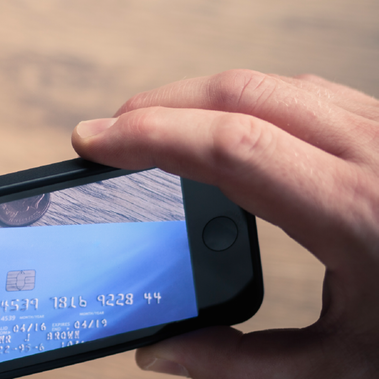Transformational payments solutions:In a sign of the growing power of data and partnerships in commerce, Alibaba is promoting its merchant program called A100. The program shares data on customer shopping history and payment preferences with other merchants such as Nestle and Procter & Gamble in exchange for a closer partnership (e.g., via more marketplace listings). Snack food chain Bestore Co., another member of the program, announced plans to integrate Alibaba’s customer data with facial recognition technology to gauge product preferences and accept payments in-store, leading to a superior customer experience. JD.com, Alibaba’s main competitor also offers a similar service. Source: Reuters |
|
Regulatory landscape: The Federal Reserve announced plans to create a new real-time payments system called FedNow. The objective is to help consumers, merchants, and other entities originate and receive payments faster. The system is expected to launch in 2023 or 2024 and will compete with other existing faster payment solutions from the private sector such as the Real-Time Payments (RTP) system from The Clearing House. One of the use cases for merchants and other businesses will be the ability to use sale proceeds to pay suppliers and vendors immediately, rather than relying on short term funding.Source:Bloomberg |
|
Customers’ evolving expectations: Visa is launching new installment payments capabilities via APIs to offer customers more flexible ways to pay. Customers can now use Visa’s service to make payments for both in-store and online purchases in equal installments, without having to undergo an additional credit check or open a new line of credit. Although installment financing is gaining in popularity across the globe, the process generally is not frictionless to customers. This is because the payment option is presented at the final checkout page, after which customers are required to sign-up with the provider and open a new line of credit. They are also required to repeat this process with each merchant that uses a different installment financing provider. Visa is seeking to change this by standardizing the process across merchants.Source: Visa |
|
Data:Walmart launched an initiative using blockchain technology and QR codes to allow Chinese consumers to verify the source of fresh produce in stores before paying. Participants across the supply chain will leverage the decentralized blockchain platform to share their data, which will be tamper-proof. This service is already live for 23 product lines and is expected to expand to an additional 100 product lines by the end of the year. Source: NFC World |
|
New providers: LG Pay became the most recent mobile payments solution to launch in the U.S., following other solutions such as Apple Pay, Samsung Pay and Google Pay. LG Pay can be used to pay at any merchant that has a magstripe terminal or a contactless (NFC) enabled terminal. LG Pay supports voice commands and also offers a digital LG Pay Perks card for loyalty offers. It also provides users the ability to buy and send gift cards across a number of merchants via a partnership with Swych.Source: NFC World |
PARTNERSHIP SPOTLIGHT

- On the heels of Fiserv’s acquisition of First Data, Bank of America announced that it would dissolve its Banc of America Merchant Services (BAMS) joint venture with First Data by June 2020. Bank of America and Fiserv have agreed to offer uninterrupted services to existing clients until at least June 2023. Subsequently, First Data will be a key service provider for BAMS.
Source: Bank of America - Elavon, the acquiring/processing arm of U.S. Bank and Brighterion, a Mastercard company announced a partnership to integrate Brighterion’s AI capabilities to fight fraud, into Elavon’s platform. Elavon hopes to benefit from this partnership by offering its merchant clients a higher ability to detect fraud as compared to rules-based systems, while also reducing false positives that can have a negative impact on customer experience.
Source: Bloomberg
MERCHANT SPOTLIGHT

- Kroger reached a settlement with Visa on the lawsuit that it had filed in 2016 against the network for obstructing its PIN-debit routing choice. Kroger preferred to route debit transactions as chip-and-PIN on account of them being more secure and lower cost than chip-and-signature; chip-and-PIN transactions generally do not get routed over Visa. The settlement does not impact the partial ban of Visa cards that Kroger has implemented across some of its subsidiaries’ stores owing to high interchange rates.
Source: Business Insider
Oliver Wyman is a global leader in management consulting with offices in 60 cities across 29 countries. Our Payments practice works with constituents across the payments value chain to deliver insights with real impact, combining deep industry expertise with powerful consulting capabilities.
To have a discussion with Oliver Wyman on your payments issues and opportunities, please contact Beth Costa or Rob Mau at payments@oliverwyman.com.
Note that Oliver Wyman believes the curated content to be reliable, but it has not been verified. As such, Oliver Wyman gives no warranty as to the accuracy of such information. Oliver Wyman’s curation of such content should not be interpreted as an endorsement of the organizations that published the content.




